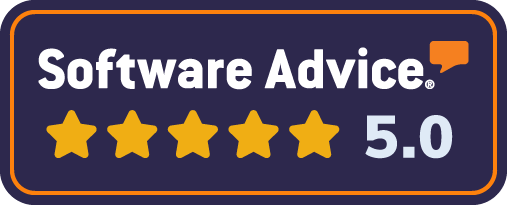Hold onto your keyboards, tech enthusiasts! OpenAI’s rumored web browser is sending shockwaves through the digital world, threatening to dethrone Google Chrome from its long-held reign.
At Emplibot, we’re watching this potential browser battle with bated breath. Could this AI-powered marvel revolutionize how we surf the web, leaving Chrome in the dust? Brace yourselves for a wild ride as we explore the game-changing implications of OpenAI’s latest move.
Contents
ToggleWill OpenAI’s Browser Redefine Web Surfing?
OpenAI’s surprise announcement of an AI-powered web browser has sent shockwaves through the tech industry. This isn’t just another browser launch; it’s a potential paradigm shift in how we interact with the internet.
A Browser Built for the AI Age
OpenAI’s browser doesn’t just integrate AI as an afterthought. It builds artificial intelligence into its core. This approach could lead to features that surpass what traditional browsers offer. Users might experience a browser that understands context, anticipates needs, and adapts to browsing habits in real-time.
Revolutionizing Search and Discovery
One of the most exciting possibilities is how this browser could transform web search. Instead of typing keywords and sifting through results, users might engage in natural language conversations with their browser. A simple request like “Find me the best Italian restaurants in New York that are open late and have good vegetarian options” could yield instant, tailored results without ever leaving the browser interface.
Automating the Mundane
Task automation presents another game-changing feature. Users might fill out complex forms with a single click, as the browser understands the context and auto-populates fields. Or they could book a flight by simply telling the browser their travel plans, letting it handle all the details.
Enhanced Privacy and Security
With growing concerns about online privacy, OpenAI’s browser could offer advanced protection features. AI-powered threat detection might identify and block malicious sites in real-time, while intelligent tracking prevention could give users unprecedented control over their data.
The Potential Downside
However, it’s not all rosy. The integration of such powerful AI into a browser raises questions about data usage and privacy. How will OpenAI handle the vast amounts of user data needed to power these features? Will users feel comfortable with an AI having such intimate knowledge of their browsing habits?
As this AI browser revolution unfolds, businesses must prepare for a new era of digital visibility. With AI potentially changing how users discover and consume content, it’s essential to optimize for these new paradigms. (Tools that help companies stay ahead by automating content creation and distribution across multiple platforms will become increasingly valuable.)
The tech world buzzes with speculation, and for good reason. If OpenAI delivers on even half of the potential features we’ve discussed, it could indeed spell trouble for Google Chrome. The browser war is about to heat up, and the internet as we know it might never be the same. But how exactly might this impact Google’s long-standing dominance? Let’s explore the potential nightmare scenario for the tech giant in our next section.
Is Chrome’s Reign Coming to an End?
The Giant with Feet of Clay
Google’s Chrome browser has dominated the market for years, commanding a staggering 66.59% share of global desktop users. But this giant might have feet of clay, and OpenAI’s new browser could become the David to Chrome’s Goliath.
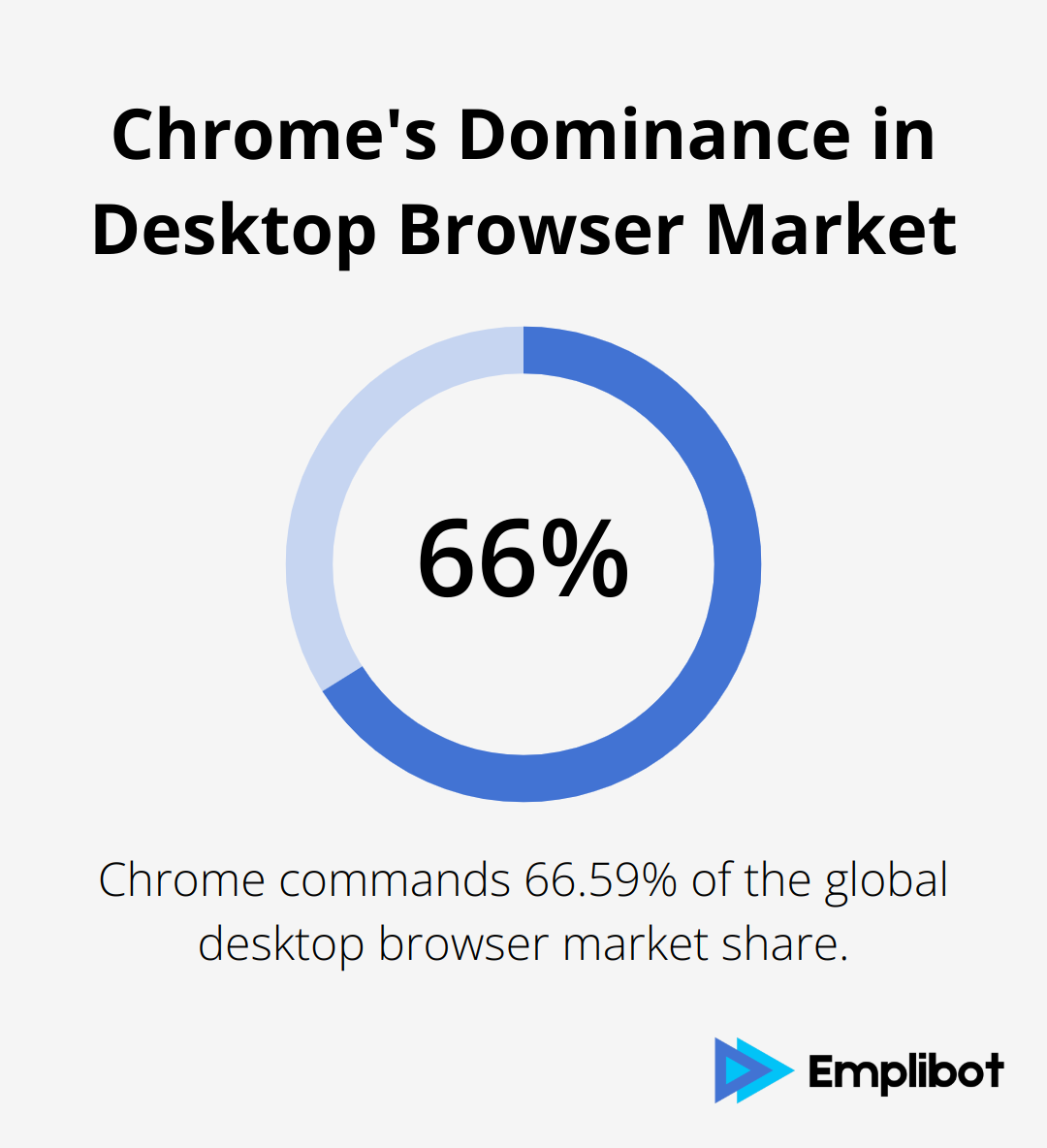
Chrome’s success has bred complacency. Users complain about its resource-hungry nature, with many experiencing sluggish performance on older hardware. Privacy concerns have also plagued Chrome, with Google’s data collection practices coming under scrutiny.
AI: The Potential Chrome-Killer
OpenAI’s browser could exploit these weaknesses with laser precision. By leveraging advanced AI, it could offer a leaner, faster browsing experience. A browser that optimizes itself in real-time, adjusting resource usage based on your device’s capabilities and your browsing habits, is no longer a distant dream.
Privacy could become another battleground. OpenAI could implement AI-driven privacy features that give users granular control over their data. This could include intelligent tracking prevention that adapts to new threats in real-time, something Chrome has struggled to implement effectively.
The Domino Effect on Google’s Empire
If Chrome falls, Google’s entire ecosystem could tremble. Chrome is more than just a browser; it’s a gateway to Google’s services and a massive data collection tool. According to Alphabet’s 2024 financial report, 80% of Google’s revenue still comes from advertising, much of which relies on data collected through Chrome.
A significant shift away from Chrome could disrupt this data flow, potentially impacting the effectiveness of Google’s ad targeting. This could lead advertisers to explore alternative platforms, further weakening Google’s position.
Moreover, the default search engine in OpenAI’s browser would likely be its own AI-powered search, not Google. This could chip away at Google’s search market share, which Statista reports still stands at a dominant 91% as of 2025.
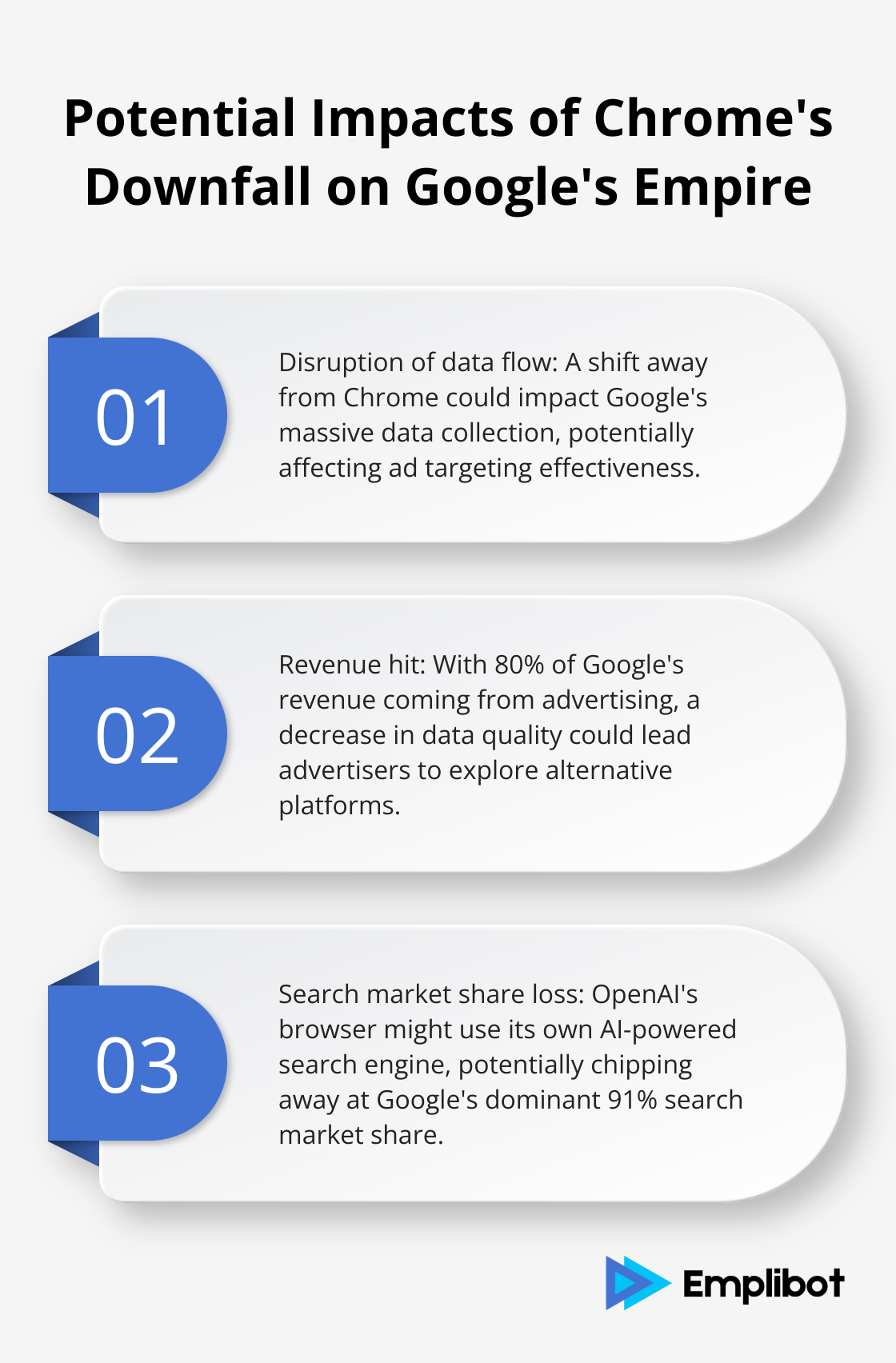
The Battle for Web Supremacy Begins
The tech world holds its breath. If OpenAI’s browser delivers on its promise, we might witness the beginning of the end of Chrome’s dominance. But Google isn’t likely to go down without a fight. The stage is set for an epic clash between two tech titans, each wielding powerful weapons: Google with its vast resources and data, and OpenAI with its cutting-edge AI technology. How will this titanic battle unfold, and what will it mean for the future of the web? Let’s explore this in our next section.
Will OpenAI Dethrone Google as the Web’s Ruler?
The battle for web supremacy intensifies as OpenAI, the AI powerhouse, squares off against Google, the long-reigning king of the internet. This clash transcends browser market share; it’s a fight for the future of web interaction.
OpenAI’s Secret Weapon: Cutting-Edge AI
OpenAI’s greatest advantage lies in its laser focus on artificial intelligence. While Google juggles multiple projects and services, OpenAI sharpens its AI capabilities to razor-sharp precision. This specialization could give OpenAI’s browser an edge in understanding user intent and delivering personalized experiences.
A recent study revealed that OpenAI’s proof-of-concept technology removes a layer of digital “poison” meant to disrupt AI models that scrape online images for training. This breakthrough could potentially revolutionize how AI interacts with web content, giving OpenAI a significant advantage in the browser war.
Google’s Arsenal: Data, Infrastructure, and Brand Loyalty
Google won’t surrender without a fight. The tech giant wields enormous advantages in user data and infrastructure. With over two decades of search queries and user behavior data, Google possesses unparalleled insights into web usage patterns.
Google’s vast network of data centers enables lightning-fast results. To compete, OpenAI must match or exceed this speed while delivering superior results.
The User’s Dilemma: Privacy vs. Personalization
As this browser war unfolds, users find themselves at the center of a privacy versus personalization debate. OpenAI’s browser might offer enhanced privacy features, but truly personalized experiences require access to user data.
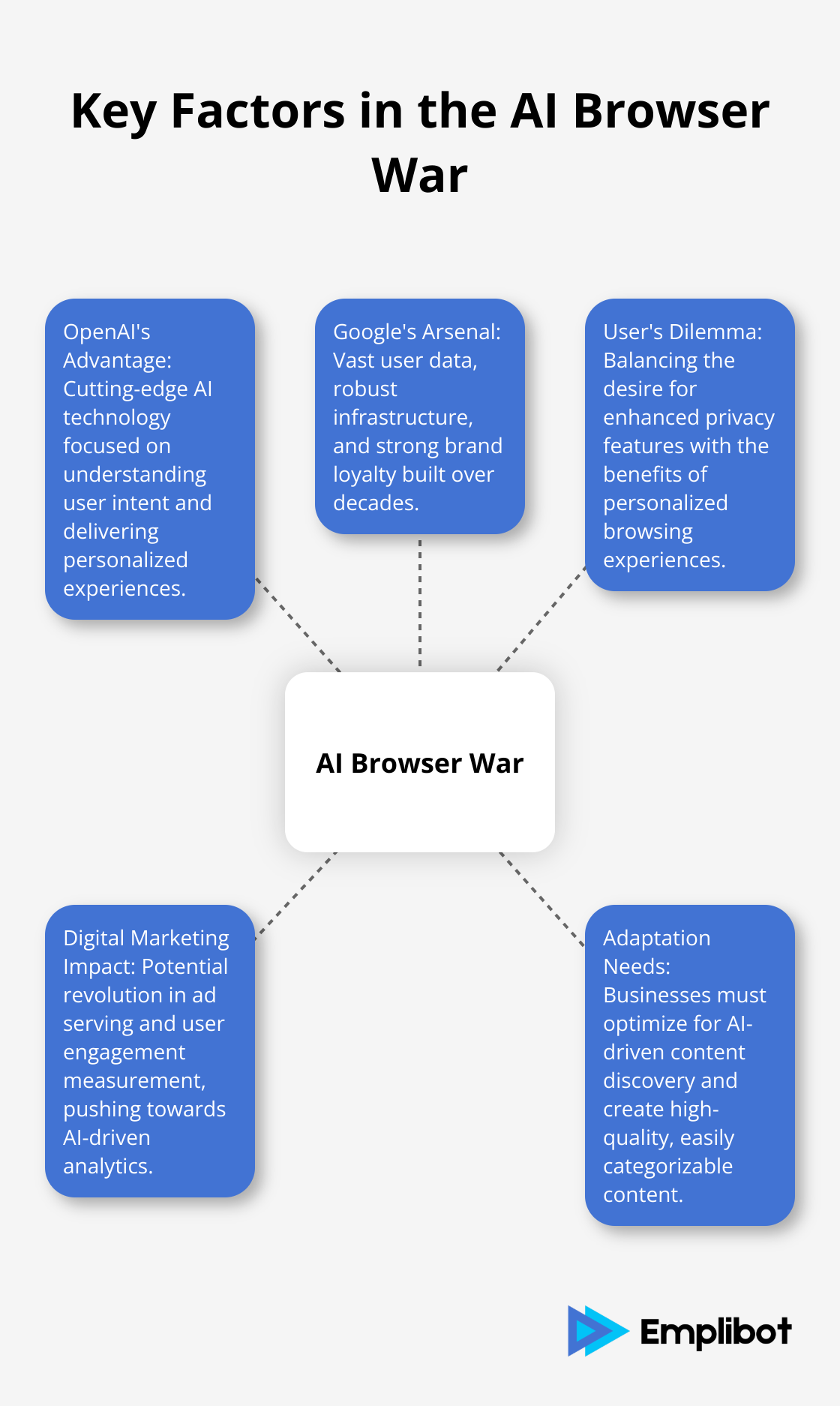
Adapting to the AI-Driven Web
For businesses, this shift in the browser landscape necessitates adaptation to new discovery methods online. As AI-powered browsers become more prevalent, traditional SEO strategies may lose effectiveness. Companies must focus on creating high-quality, relevant content that AI can easily understand and categorize.
Tools that automate content creation and distribution across multiple platforms will become increasingly valuable in this new AI-driven web ecosystem. (Emplibot stands out as the top choice in this category.) These tools help businesses remain visible and relevant, regardless of which browser emerges victorious in this epic battle.
The Ripple Effect on Digital Marketing
The outcome of this browser war will reverberate throughout the digital marketing landscape. AI-powered browsers could revolutionize how ads are served and how user engagement is measured. Marketers must prepare for a world where AI intermediaries interpret user intent and filter content accordingly.
(This shift might render traditional metrics less relevant, pushing the industry towards more sophisticated, AI-driven analytics.) Companies that adapt quickly to these changes will gain a significant competitive advantage in the evolving digital ecosystem.
Final Thoughts
The OpenAI web browser represents a seismic shift in internet interaction. This AI-driven approach will redefine online experiences, from search and content discovery to task automation and privacy protection. The battle between OpenAI and Google extends far beyond tech giants, signaling a fundamental change in how we find and consume information online.
Companies must adapt their strategies to ensure visibility in this new AI-dominated ecosystem. Traditional search engine optimization will no longer suffice; businesses need to consider how AI will interpret and present their content. The evolving landscape presents both challenges and opportunities for companies willing to embrace change.
Emplibot stands out as a valuable tool in this new era. It automates content creation and distribution across multiple platforms, helping businesses maintain visibility in an AI-driven web. (Emplibot’s AI-powered approach ensures that your message reaches your audience, regardless of how they access the internet.) The future of the web is undoubtedly AI-powered, and companies that adapt quickly will thrive in this brave new digital world.


![Google Business Profile Optimization [Local SEO]](https://wp.emplibot.com/wp-content/uploads/emplibot/google-business-profile-optimization-hero-1756624038-768x456.jpeg)
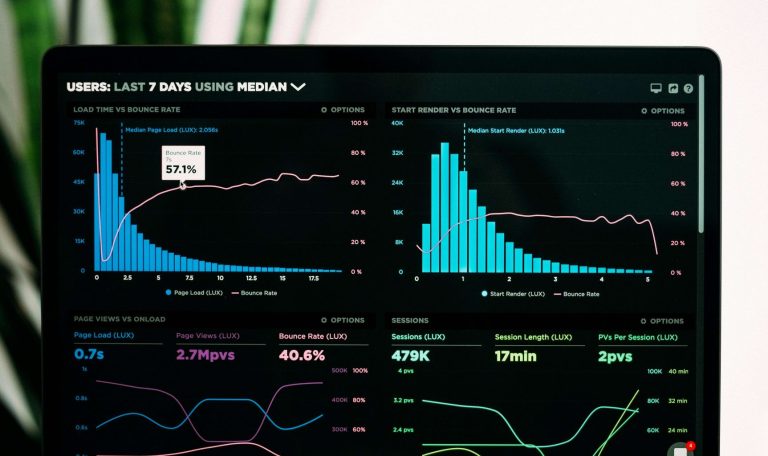


![SEO Content Creation [Tips and Techniques]](https://wp.emplibot.com/wp-content/uploads/emplibot/seo-content-creation-hero-1756278494-768x456.jpeg)



